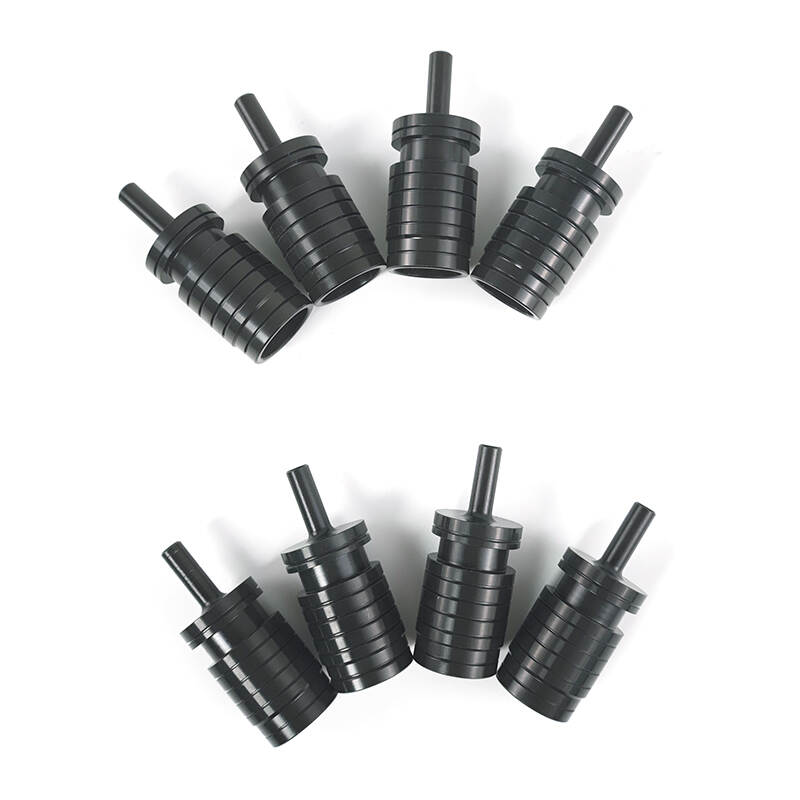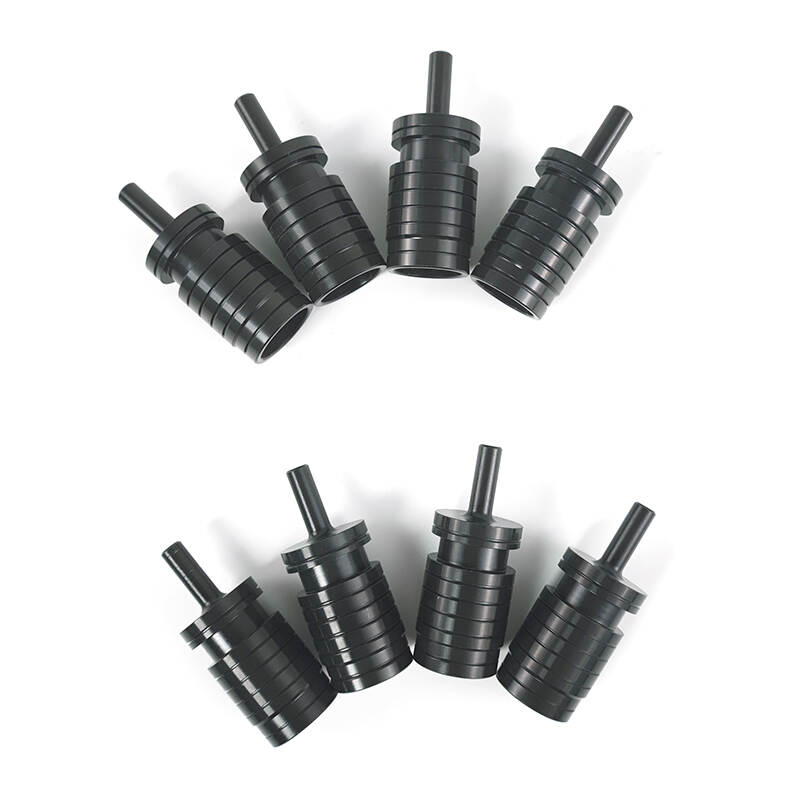
Email format error
Email cannot be empty
Email already exists
6-20 characters(letters plus numbers only)
The password is inconsistent
Email format error
Email cannot be empty
Email does not exist
6-20 characters(letters plus numbers only)
The password is inconsistent


The global energy industry has been one of the most vital sectors in the world, powering everything from homes to businesses, industries, and transportation systems. Behind the scenes, a crucial piece of equipment that helps extract oil from beneath the earth’s surface is the oil pump. Oil pump factories, which manufacture these essential devices, play a significant role in supporting the global energy infrastructure. In this blog, we’ll explore the significance of oil pump factories, the technology behind oil pumps, and how these factories have evolved to meet the ever-growing demands of the energy industry.
Before diving into the factories that produce them, it's important to understand what an oil pump is and why it's so critical. An oil pump is a mechanical device used to lift crude oil from underground reserves to the surface. The process of extracting oil from deep beneath the earth involves more than just drilling. Oil pumps are used to force oil up the wellbore when natural pressure is insufficient. These pumps are commonly used in places where oil is extracted from deep underground reservoirs or in older wells where pressure has declined over time.
The most common types of oil pumps include:
Oil pump factories are crucial because they provide the equipment needed to support oil extraction operations. Whether it's a large multinational corporation or a smaller regional player, the need for reliable and durable oil pumps is universal. Oil pump factories ensure that oil production continues smoothly by supplying pumps that meet various requirements, from extreme depths to challenging geological conditions. These factories are also involved in designing and manufacturing pumps for a range of oil recovery techniques, from primary production to enhanced oil recovery (EOR) methods.
The oil industry is an essential backbone of the global economy, and without the pumps produced in these factories, oil extraction and production would be much slower, more expensive, and less efficient. The ongoing growth of the energy sector has led to continuous technological advancements in the design and production of oil pumps, making these factories essential in the oil and gas supply chain.
The history of oil pump factories is closely tied to the history of the oil industry itself. Oil exploration and production began as early as the mid-19th century. The first commercial oil well was drilled in Pennsylvania in 1859, and it didn’t take long before equipment was developed to bring oil to the surface. Early oil extraction relied on simple manual methods or primitive pumps. As demand for oil grew, so did the need for more efficient pumping technology.
The first mechanical oil pumps were rudimentary, often powered by steam engines or animal labor. These early pumps were far less efficient than modern ones, but they laid the foundation for future innovations. As oil fields expanded in the early 20th century, oil pump factories began to emerge to meet the demand for more powerful and reliable pumps. By the time of World War II, the global demand for oil surged, and oil pump factories began focusing on mass production and scaling up their operations.
Today, oil pump factories are highly specialized facilities where cutting-edge technology and precision engineering are used to create pumps that can withstand extreme temperatures, pressures, and corrosive environments. The industry has evolved from simple, hand-crafted equipment to complex machines built for large-scale operations in oil fields across the world.

The technology used in oil pump factories has come a long way. Early oil pumps were mostly simple mechanical devices, often powered by steam engines or manual labor. Over time, however, advancements in materials, automation, and engineering have led to more efficient, durable, and automated systems.
Today, oil pump factories incorporate the latest technology to create pumps that are capable of handling a wide range of oil types and extraction environments. Some of the key innovations include:
Smart Pumps – Many modern oil pumps are equipped with sensors that allow for real-time monitoring of performance. These "smart" pumps can send data about their operating conditions, helping operators adjust parameters and maintain optimal performance.
Advanced Materials – The materials used in manufacturing oil pumps have greatly improved over time. Modern pumps are made from high-strength alloys and composite materials that can resist wear, corrosion, and the harsh environments in which they operate.
Energy Efficiency – With growing concern about the environment and energy efficiency, many oil pump factories now focus on producing pumps that use less energy while providing higher levels of performance. These energy-efficient pumps help reduce the carbon footprint of oil extraction operations.
Automation and Robotics – Many oil pump factories use automated systems to enhance the production process. Robotics and artificial intelligence are now used in assembling pumps, ensuring greater precision and consistency in production. These technologies have also led to faster production cycles and reduced manufacturing costs.
Customization – Oil pump factories often offer a wide range of pumps tailored to the specific needs of different oil fields. Whether it's a pump designed for deep-sea drilling, offshore platforms, or onshore oil wells, customization has become a hallmark of modern oil pump manufacturing.
Oil pump factories, like other parts of the energy sector, have an important role to play in both the economy and the environment. On the economic side, oil pump factories create thousands of jobs around the world, from manufacturing workers to engineers, and they support local economies by supplying critical equipment for oil extraction operations. The demand for oil pumps has led to the growth of an entire industry, with companies producing not just the pumps themselves, but also the parts, components, and accessories that support their operation.
On the environmental side, the oil pump industry faces growing pressure to adopt more sustainable practices. While oil pumps are crucial for extracting energy, the oil industry as a whole is one of the largest contributors to greenhouse gas emissions. As a result, many oil pump factories are working to improve the sustainability of their operations. Some have made strides in using renewable energy sources in their manufacturing processes, while others focus on producing pumps that can help reduce environmental damage during oil extraction, such as pumps designed to minimize leakage and waste.
While oil pump factories play a key role in supporting the oil and gas industry, they face several challenges in the modern world. One of the primary challenges is the ongoing volatility in the global oil market. Prices for crude oil fluctuate dramatically, which can make it difficult for oil pump factories to forecast demand. When oil prices are high, the demand for oil pumps increases as companies ramp up production. However, when prices drop, oil extraction activities may slow down, leading to a decrease in demand for pumps.
Another challenge is the growing demand for more environmentally friendly and sustainable oil extraction techniques. Oil pump factories must continuously innovate to produce pumps that reduce energy consumption and environmental impact. This requires ongoing research and development, which can be costly and time-consuming. Additionally, as renewable energy sources become more popular, oil pump factories must explore ways to remain relevant in an increasingly competitive energy market.
As the energy industry continues to evolve, so too will oil pump factories. The future of these factories will likely see an increased emphasis on automation, artificial intelligence, and green manufacturing practices. Advances in technology will lead to even more efficient pumps capable of handling increasingly difficult extraction environments, while sustainability will remain a major focus.
Moreover, oil pump factories will have to adapt to the changing energy landscape. With the rise of renewable energy sources, there is an ongoing shift in how energy is produced and consumed. However, oil will remain a significant part of the global energy mix for decades to come, and as such, oil pump factories will continue to play a crucial role in meeting global energy needs.
In conclusion, oil pump factories are a cornerstone of the global energy infrastructure. Through innovation, technological advancements, and adaptation to market demands, these factories ensure that oil production continues efficiently and sustainably. Whether you're driving a car, heating your home, or flying across the globe, it's likely that oil pumps produced in these factories played a part in making that possible. As the world transitions to more sustainable energy practices, oil pump factories will remain essential players in the global energy story.